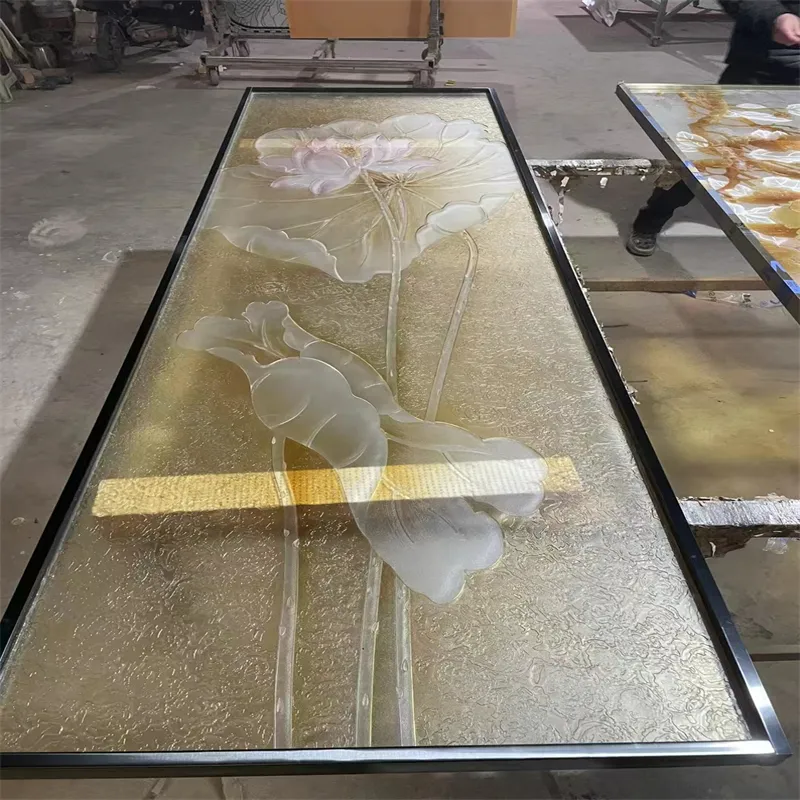Nov . 27, 2024 20:28 Back to list
Innovative Applications of Thin Film Coatings for Enhanced Glass Performance
The Importance of Thin Film Coating on Glass
In our modern world, glass is ubiquitous, found in everything from windows and mirrors to high-tech devices like smartphones and smart displays. While glass itself is a remarkable material, its properties can be significantly enhanced through the application of thin film coatings. Thin film coatings are microscopic layers of material applied to the surface of glass, providing a myriad of benefits that enhance performance and longevity.
Understanding Thin Film Coatings
Thin film coatings are generally just a few nanometers to a few micrometers thick. They can be composed of metals, oxides, or other compounds and are deposited onto the glass surface using various techniques such as physical vapor deposition (PVD), chemical vapor deposition (CVD), or sputtering. Depending on the type of coating and its intended application, these coatings can serve a range of purposes including anti-reflective properties, optical filtering, and scratch resistance.
Enhancing Optical Performance
One of the most significant advantages of thin film coatings on glass is their ability to enhance optical performance. Anti-reflective (AR) coatings reduce glare and increase light transmission, which is particularly beneficial in applications such as eyeglasses, camera lenses, and solar panels. By minimizing reflections, these coatings allow more light to pass through, improving the efficiency of optical devices and enhancing the user experience. Furthermore, specialized coatings can filter certain wavelengths of light, allowing for clearer visibility and protection from harmful UV rays.
Improving Durability and Longevity
thin film coating on glass

In addition to improving optical characteristics, thin film coatings significantly enhance the durability of glass surfaces. For instance, scratch-resistant coatings add an extra layer of protection, making glass surfaces more resilient to everyday wear and tear. This is especially important for screens on smartphones and tablets, where scratches can impair functionality and reduce aesthetic appeal. Furthermore, anti-fog and hydrophobic coatings can improve visibility in wet or steamy conditions, making them ideal for automotive and sporting applications.
Energy Efficiency and Sustainability
Another critical aspect of thin film coatings is their role in energy efficiency and sustainability. Low-emissivity (Low-E) coatings are commonly used in architectural glass to reduce heat transfer, improving insulation and reducing energy consumption for heating and cooling. By reflecting infrared light while allowing visible light to pass through, these coatings help maintain comfortable indoor temperatures, reducing the reliance on artificial heating and cooling systems. This not only lowers energy bills but also contributes to a reduced carbon footprint.
Future Developments and Innovations
The field of thin film coatings is rapidly evolving, driven by advances in material science and engineering. Innovations such as self-cleaning coatings, which utilize photocatalytic properties to break down dirt and pollutants when exposed to sunlight, signify a leap towards more functional and maintenance-free glass products. Moreover, researchers are exploring nanotechnology to create even thinner and more effective coatings that adhere to the strictest environmental regulations.
Conclusion
Thin film coatings play a vital role in enhancing the properties of glass, making it a more efficient, durable, and versatile material. As technology continues to advance, the potential applications for these coatings will expand, leading to more sophisticated glass products that can meet the demands of modern life. In a world where aesthetics, performance, and sustainability are increasingly intertwined, thin film coatings offer a multifaceted solution that benefits both consumers and the environment. The future of glass technology is undoubtedly bright, thanks in large part to the innovations in thin film coatings.
-
Safety and Style with Premium Laminated Glass Solutions
NewsJun.24,2025
-
Reinvents Security with Premium Wired Glass
NewsJun.24,2025
-
Premium Float Glass Line for Modern Architecture
NewsJun.24,2025
-
Low Emissivity Glass for Energy-Efficient Architecture
NewsJun.24,2025
-
High-Performance Insulated Glass Solutions for Modern Architecture
NewsJun.24,2025
-
Elevates Interior Style with Premium Silver Mirror
NewsJun.24,2025
Related PRODUCTS














